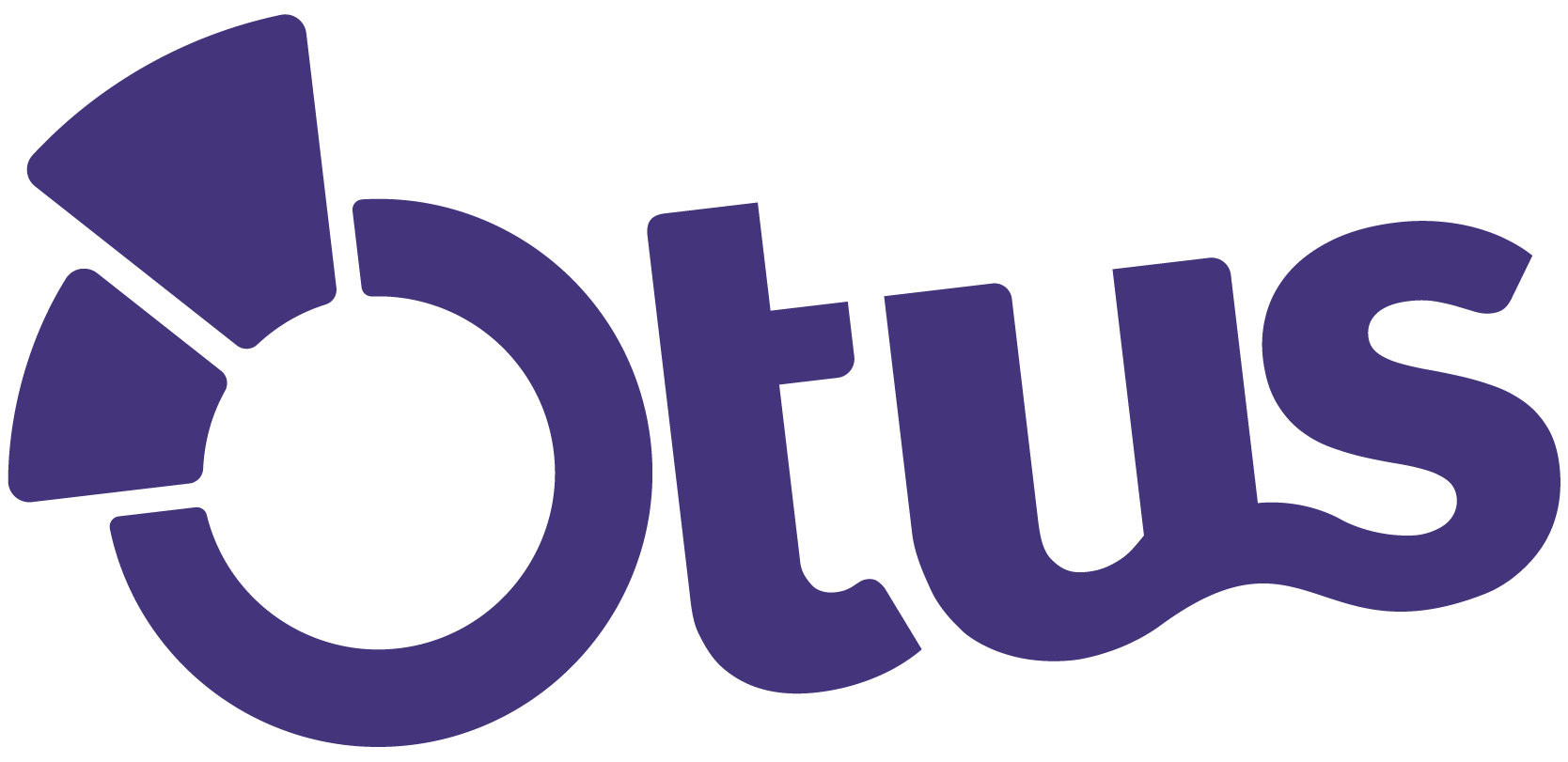A Conversation from Our Regional Workshop
This interview was captured at the 2022 Marquardt School District 15 Otus Workshop. We took a break from our full day of learning and collaboration to sit down with Lexi Robinson, Coordinator for Teaching & Learning for North Shore School District 112 who shared her school’s journey with Otus. North Shore began using Otus in 2020 to provide a single system to accommodate remote learning for its students and staff. Over the last three years, their use of Otus has grown to support professional learning communities, progress monitoring, assessments and more.
Our Regional Workshops are an opportunity for Otus users to learn more about Otus while networking with innovative educators from school districts in their region. All Otus workshops are free to educators, including those not currently using Otus, and are designed to support their professional learning and growth.
Read: Three reasons you don’t want to miss an Otus Regional Workshop!
Three Key Takeaways from Our Conversation with Lexi Robinson
1. Streamline learning for educators, students and families with an all-in-one platform
When educators use too many learning platforms within one district, it causes a disconnect amongst colleagues and frustration for students and families who struggle to access valuable information about student assignments and progress. Instead of using separate, disconnected apps for daily tasks such as assessment, grading, and progress monitoring, opt for an all-in-one suite that integrates these tools and provides a single site for all stakeholders to easily navigate student learning.
2. Gather and analyze actionable student data in one platform to drive meaningful classroom decisions
Valuable student data often originates from several sources, from state and national standardized tests to local assessments administered by educators in the classroom. On their own, each data set might show how a student or class performed on a single assessment, but this doesn’t provide any deep, meaningful insight into student or classroom performance over time. By using a learning platform that integrates all student data – from formative and summative assessment results to third-party data from standardized tests – educators can disaggregate, search and filter data from all sources to identify trends in individual students, student groups and beyond. Educators can not only use the insights from this data to differentiate instruction for students, but to inform larger conversations at the grade or district level or through PLCs.
3. Student learning plans that can be shared and tracked over time allow for more effective intervention
Monitoring and tracking student data can be incredibly valuable for educators looking to provide student intervention and create individualized learning plans to improve learner outcomes. But oftentimes, student learning plans and the data used to create them aren’t shared when a student graduates from one grade level to the next, meaning each year that student’s new teachers start from scratch and lose a wealth of valuable insight into historical student performance. By using a learning platform that allows student plans to be shared with educators throughout the district, educators can easily see which interventions have been effective and the student’s growth journey can be tracked throughout the course of their entire student career. This is especially important for districts implementing frameworks such as Multi-Tiered System of Supports (MTSS) that guide schools and teachers to provide appropriate instruction and interventions to ensure all students receive the education and support they need to succeed.
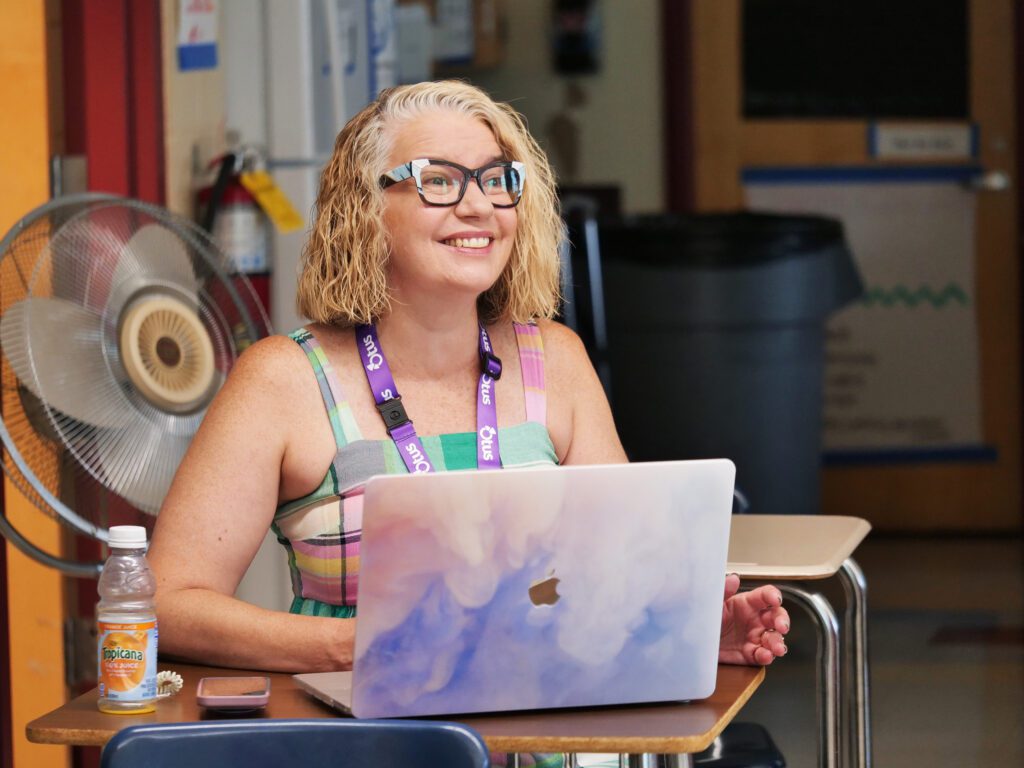
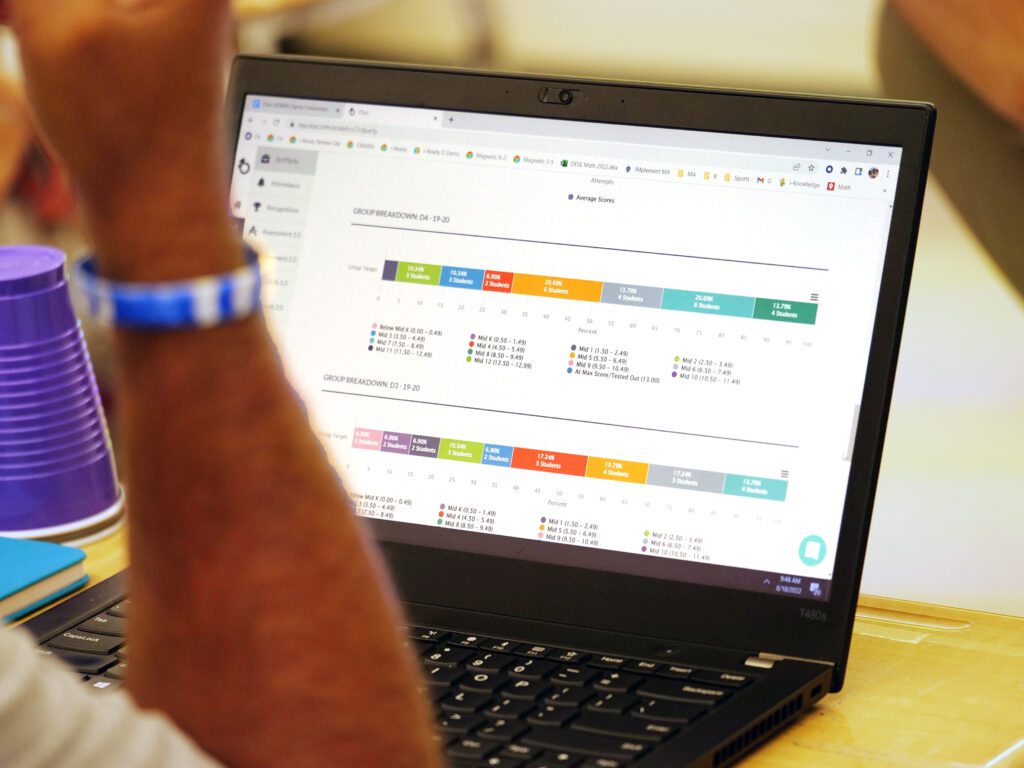
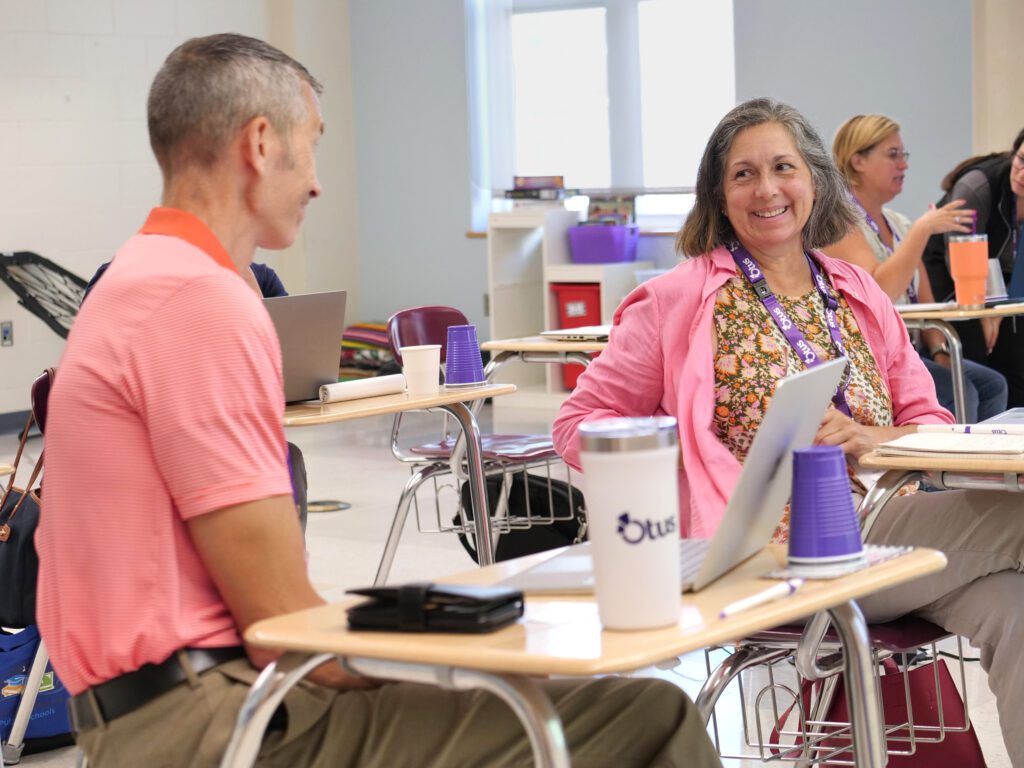
Interview Transcript
Kendell (00:10)
All right, well, if you wouldn’t mind to start, would you just share your name, your role, and the school district that you support?
Lexi (00:17)
Absolutely. I’m Lexi Robinson. I’m one of the coordinators for teaching and learning in North Shore School District 112 in Highland Park, Illinois. And we’ve been utilizing Otus for a few years now.
Kendell (00:28)
Love to hear that. Can you share more, Lexi, about North Shore’s journey with Otus thus far? What have those few years looked like?
Lexi (00:35)
Well, we started utilizing Otus during the pandemic, and it was really a big help for us because we had a lot of different teachers utilizing different platforms. We had some teachers using Seesaw, some teachers using Google Classroom, some teachers just using email. And parents were getting a little bit confused. They were like, where am I supposed to look? How am I supposed to know what my kiddo needs to do today? So utilizing Otus helped us to really streamline that for all of our kindergarten through 8th grade families, there was one single system that allowed them to help their student navigate remote learning.
But the biggest thing that we utilize is the common assessments. So we utilize advanced and rubric assessments, and we share those to all of our staff in order to help run our PLC meetings and to help our collaborative teams really dig into the data to determine what is it that our students need to know and how are they doing that? How are we monitoring their progress and measuring what they’re doing? And so that’s been a really helpful tool to have a space where all of our common assessments can be shared. The data is organized into one place, and then there’s multiple different ways that we can filter and use that data to help us inform what our kiddos need.
“The data is organized into one place, and then there’s multiple different ways that we can filter and use that data to help us inform what our kiddos need.”
Kendell (01:42)
Wow, it sounds like you all have had quite the journey with Otus. A lot of different areas of the platform there. Tell me more about how you’re using Otus at those PLCs. We have a lot of schools interested in using Otus who maybe aren’t actually functioning with PLCs yet in their district. Can you just talk us through a little bit more about what that looks like for your school? Any tips and tricks?
Lexi (02:06)
It’s still a journey, so we’re still definitely starting out in ours and some teams. We’ve been fortunate enough to work really closely with some teams that are dual-language buildings. And so we have had a team lead that worked alongside an instructional coach to really help lead data conversations. We’ve got formative assessment windows that teachers are giving common assessment times. And so it really looks like once a week teams are coming together to look at student assessment work, really review rubrics and student examples to see how can we best intervene or extend learning based on what we notice from our students.
And I think particularly looking at rubric assessments, we’ve been able to have really great pedagogical conversations about how am I going to ensure that these students are meeting the expectations. And it’s nice that there are options for both standards-based and points grades because our K through five system is currently a standards based reporting system.
But our middle schools, our 6th through 8th graders, are points based. So it’s nice that we have the option to be able to utilize both within our system, but then always link to standards so that we can really drill down. What do we want our students to know and be able to do and how are we going to know when they’re doing that.
Kendell (03:18)
Wow, love the flexibility there. That’s always a selling point. It’s good to have those options and be able to keep each group in their appropriate track there.
Lexi (03:27)
Yeah, and that analytics feature has been really helpful, particularly looking at the assessment 1.0 if we’re looking at a specific pre-assessment or post-assessment to see how students did from the pre to the post, or looking at the Standards 2.0, where we can look at multiple standards across all the assessments and then drill down by student, group by building, by teacher. So it’s been really great to help us see, if I’m on your team and as a third-grade teacher and 40% of your students met the expectation, but only ten of mine did, well, what did you do to get that increase in percentage? What strategies can I share? So we’ve had some really meaningful conversations instructionally that led from that data.
“If I’m on your team and 40% of your students met the expectation, but only ten of mine did, well, what did you do to get that increase in percentage? What strategies can I share? So we’ve had some really meaningful conversations instructionally that led from that data.”
Kendell (04:06)
I love to hear that. It sounds like the conversation is really more focused on the students rather than on collecting and organizing and delegating out the work. Now you’ve been able to shift to that.
Lexi (04:16)
Exactly. And then the nice thing, too, is you can really drill in, and you can see which specific questions students got wrong or what the most common misconception was. And it really just allows for some really great conversations that lead to really actionable decisions in the classroom.
Kendell (04:36)
Well said. Very well said. How are students receiving the Otus platform? Or have you seen any impact in their usage since they’ve kind of moved to this digital platform through the pandemic?
Lexi (04:46)
I think students have become more independent, especially our younger learners. During the pandemic, it was hard, it was a challenge, especially for some of our nonreaders to navigate at first. But once we sort of gave them the tools and showed them the roadmap for how to locate the right things, they had a great time just being able to they know. I’m going to look at my to-do list and what’s showing for me today, what assignments do I have from my teacher.
One thing that I really hope to get our staff utilizing more is the portfolios. And so hopefully the next step in our journey of utilizing Otus is utilizing plans for our MTSS framework, but also going into the report card feature. And so I think that’ll be a really powerful tool for teachers to be able to use the portfolio alongside report cards at a parent teacher conference to really understand, well, what is your student doing, what are the highlights of their work, and see that collection over time.
Kendell (05:38)
Wow. Thank you for showcasing all of those different use cases. I know I heard you say plan. So is North Shore focused this year on MTSS systems? Tell me about what you all are working on this year.
Lexi (05:51)
We are; great question. So it’s been a three-year journey. So in 2019-2020, we had a program evaluation done for our special education department and they really looked to see what is it that we can continue to improve upon. And one of the areas was having a really consistent district-wide MTSS framework. So then, from there, we launched a guiding coalition across the district.
And so, for the past two years, we’ve been really outlining: What is our framework? What does that look like? So we have consistency in protocols, procedures, communication, data tracking across all of our nine schools, elementary and middle. And so this year as part of that launch, we are having teachers trained and learning how to monitor and track that data in a plan in Otus so that it’ll be carried through from student to student, year to year.
Because without our consistent framework before, you may not have had any information about what interventions were tried or successful or unsuccessful in previous years with previous teachers. So now that that plan will be tied to that student, anyone who’s working with that student and has access to that plan can see what was successful in years past and kind of replicate that and move forward for the future and to look at progress monitoring to help direct what their interventions or extensions are. So we’re excited to use that.
“Now that that plan will be tied to that student, anyone who’s working with that student and has access to that plan can see what was successful in years past and kind of replicate that and move forward for the future and to look at progress monitoring to help direct what their interventions or extensions are. So we’re excited to use that.”
Kendell (07:06)
Absolutely. Sounds like you all do a fantastic job of laying the groundwork for using Otus, but with any system, that groundwork is so important to have the foundation that educators can build off. Being so far into your Otus implementation, do you have any advice for school district leaders or others in roles like yours that are just getting started with Otus or new to Otus?
Lexi (07:32)
Great question. I think utilize your Client Success Team. Right. They’re helpful. I think between the past few years, we’ve had Paul and Zach, and they’ve just been wealth of knowledge to be able to help support exactly what we need for our system and our students, which is really fabulous. I think the best thing, too, is go slow to go fast. We started off with one piece of it, looking at lessons during the pandemic, and then we talked, then moved into the common assessments, and now we’re moving into plans and then report cards. So I think going slow to build up to what you need is really helpful.

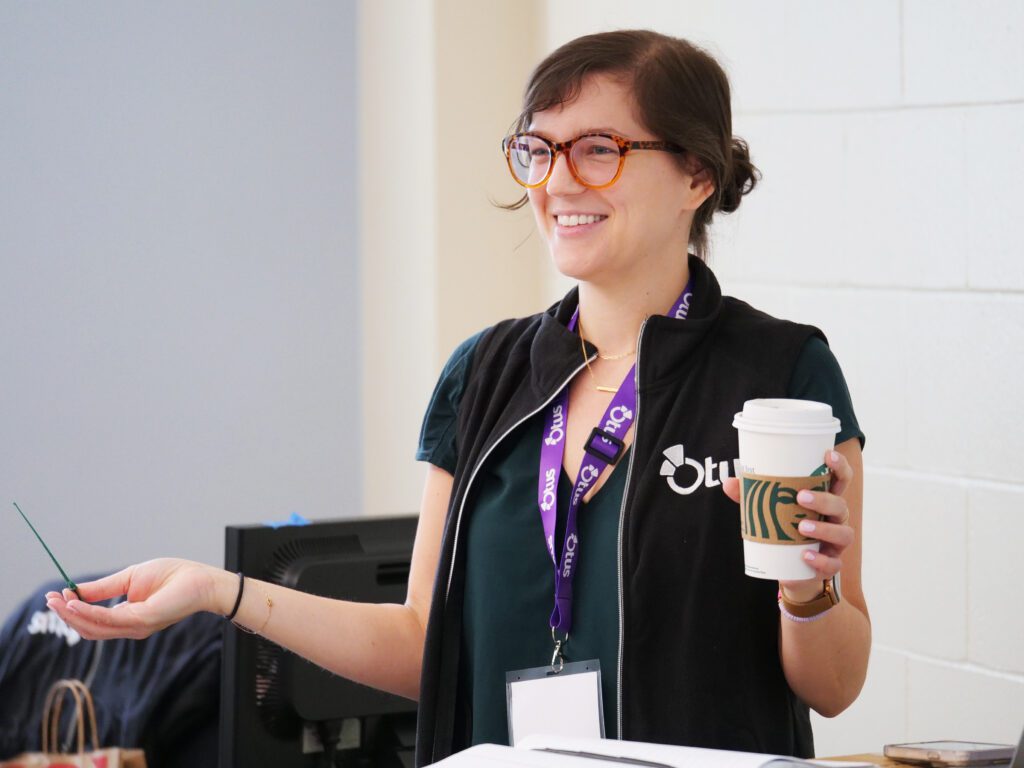

We’ve definitely had a challenge in terms of training our staff. We have some sub shortages right now, so providing professional development is really important. It’s something that I think for myself personally, I would like to continue to develop for our staff, just making sure that we have the time to adequately prepare them, so making sure that that plan is in place and ready to go to support the implementation.
Kendell (08:22)
Absolutely. Well, thank you so much for sharing your background, your expertise, and just you’re a wealth of Otus knowledge, so we really appreciate you.
Being a part of the community and just sharing all of this. I’m happy to be a part of it.
Lexi (08:35)
Like I said, I’ve learned so much from the Otus crew, but also being able to network with other Otus districts is really wonderful as well. There’s just a wealth of knowledge and sharing and support, which is great.
Kendell (08:46)
We love to hear that. Thank you so much, Lexi.
